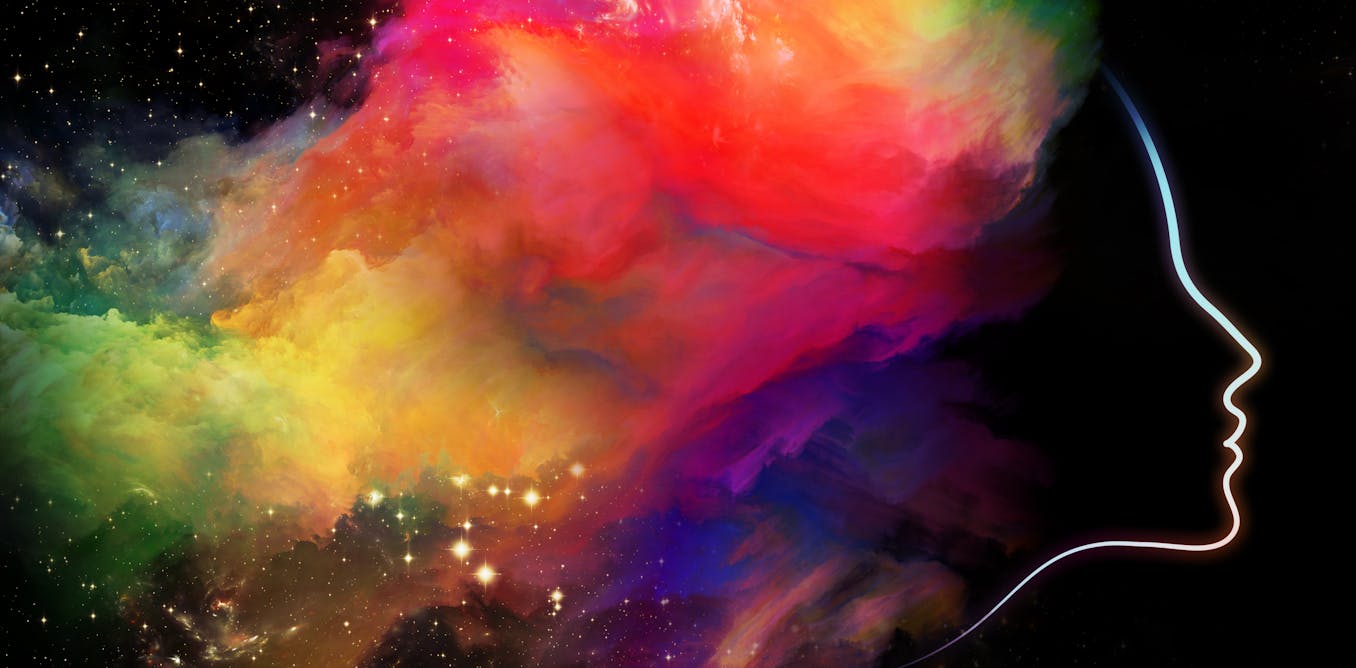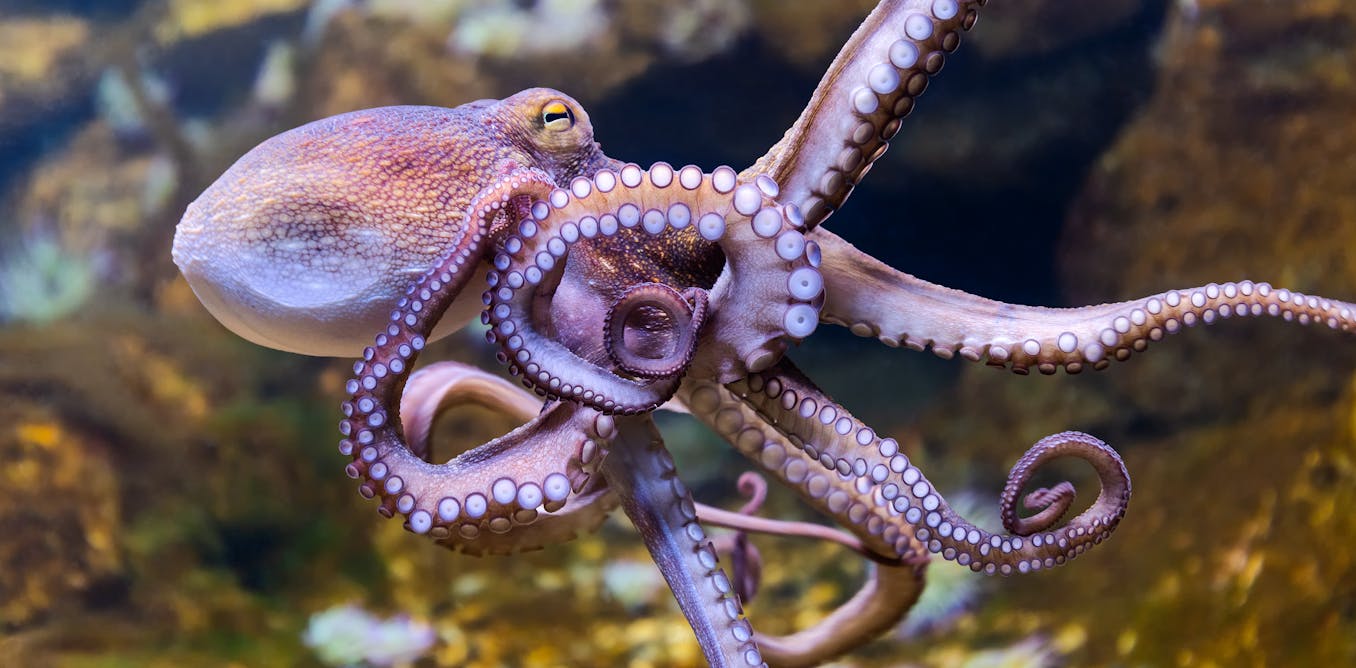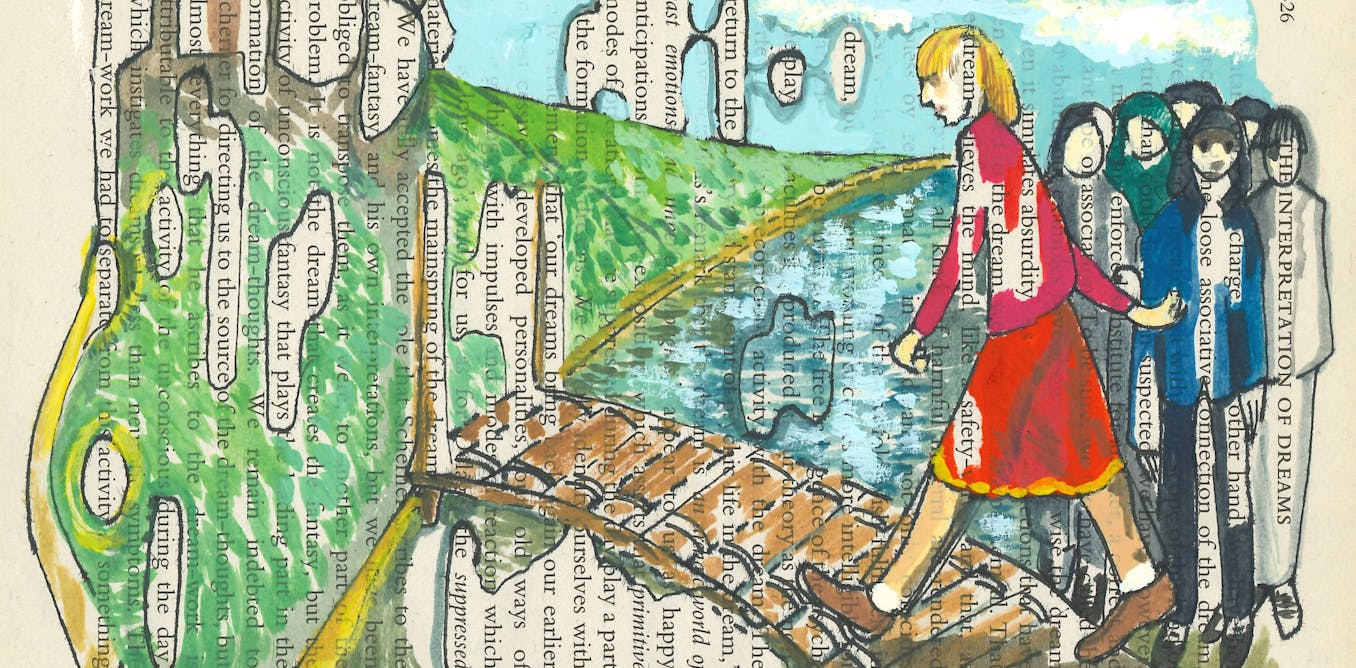‘Sleeping on it’ really does help and four other recent sleep research breakthroughs
We now have the technology and knowledge to carry out real-time dream experiments with sleeping participants.
Dan Denis, Marie Skłodowska-Curie Senior Research Fellow, University of York •
conversation
May 30, 2024 • ~8 min
May 30, 2024 • ~8 min
Imagination makes us human – this unique ability to envision what doesn't exist has a long evolutionary history
By learning what parts of the brain are crucial for imagination to work, neuroscientists can look back over hundreds of millions of years of evolution to figure out when it first emerged.
Andrey Vyshedskiy, Professor of Neuroscience, Boston University •
conversation
Feb. 23, 2023 • ~10 min
Feb. 23, 2023 • ~10 min
Rapid eye movements in sleeping mice match where they are looking in their dreams, new research finds
Why your eyes move during the REM stage of sleep has puzzled scientists for years. Researchers measured mice brains to look for a possible explanation.
Massimo Scanziani, Professor of Physiology, University of California, San Francisco
• conversation
Aug. 25, 2022 • ~6 min
Aug. 25, 2022 • ~6 min
The science of sleep: how sharing your dreams could help to improve your relationships
Listening to other people's dreams can help to improve your empathy levels.
Julia Lockheart, Senior Lecturer and Head of Contextual Practices, University of Wales Trinity Saint David
• conversation
May 13, 2020 • ~7 min
May 13, 2020 • ~7 min
/
1






